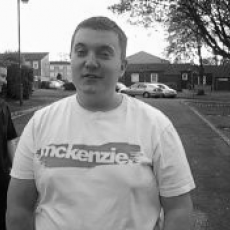London Campaign Against Police and State Violence Conference 2014

On 12 October 2014 the first annual conference of the London Campaign Against Police and State Violence took place. Called “The Right to Life is Under Threat by the State” it aimed to draw attention to lives that have been lost at the hands of the British police, experiences of survivors of police violence and organising to bring an end to these injustices.
The programme touched on issues from the broad spectrum of policing and oppression; not only stop and search, but violence against women, deaths in custody, gentrification and social cleansing and the school exclusion and unemployment rates for black boys. Discrimination and bullying by police does not happen in a vacuum but is a consequence of policies, practices and patterns across society that place more value on some lives over others.
One of the most powerful moments was the session entitled “Speak Out” where young people took to the mic to share a negative experience with the police. These ranged from being inexplicably assaulted by officers outside a club and then spending a night in prison; a hard stop that escalated into two brothers being beaten and tasered with no reason for the ever being given; and a girl getting into trouble with her mother when she was followed home from school by officers with no grounds to search her. At worst people were left severely injured, at best their criminalisation destroyed what little confidence they ever had in the police. This simple session, aiming to give people who had been wronged a space to tell their side of the story, to expose the injustice they faced to those who would listen, almost had healing qualities as we began to recognise our experiences in each other’s.
We heard of families and individuals who have been repeatedly lied to by the police; a violent assault goes on record as a friendly chat, a victim of police violence is hurriedly planted with drugs and then charged with possession; important evidence at numerous inquests into deaths in custody is tampered with or lost.
The shared struggle heard throughout is that of the individual taking on the police. A challenge at the best of times, but then comes the realisation that when state institutions are attacked, they pull together and cover each other’s backs. Who, then, can we turn to? Through discussion, films, workshops and spoken word a clear response emerged; organise and educate each other to build effective resistance within communities.
Y-Stop started because young people felt apathetic, having their rights ignored and abused on countless occasions but demotivated to do anything about it. A complaint against a police officer, investigated by another police officer, will never result in real justice so what’s the point? We can debate the validity of this opinion but the bottom line is that the complaints system is failing young people, and we need an alternative. If our true stories do not reach the police through official means then let’s gather our own evidence to build our case for change.
To close the day, one speaker said “Individually we are ignored, but collectively we can win…. It is down to us, those directly affected, to organise, to argue, to agitate and build the movement”. By supporting young people, educating each other to handle stop and search better and encouraging communities to speak up if anything goes wrong, Y-Stop aims to play a part in that.


